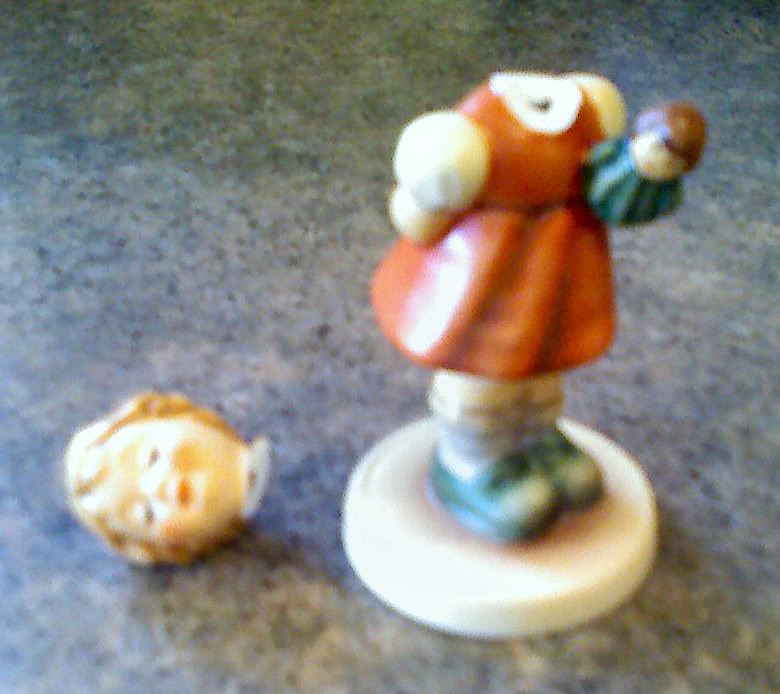Essay by Elizabeth Bales Frank
Grief, Mystery Novels, and Sour Gummy Candies

For a while after I was orphaned, I wasn’t good for much. I showed up at my job, then went home and straight to bed with a mystery novel and a bag of Sour Patch Kids. I was on the wrong side of thirty. The depression that had occupied me throughout my twenties was once again hovering at my borders, just as my writing career had crawled into a cave to hibernate.
I was drawn to mysteries set in faraway times among people who were nothing like me, who faced death as a puzzle to be solved, not a devastation to be transcended. I became attached to three series: one about a working-class policeman in Victorian London, another about an investigator in Ancient Rome who helps famous Romans with their predicaments, and the third focused on a pair of police detectives in 1970s Amsterdam, the cool one fond of jazz and cats and Zen, the fat one middle-aged and miserably married.
I should have had enough of the miserably married after a day at the office. From 1993 to 1996, I worked for a pair of divorce attorneys in New York City, an exercise I recommend to anyone burdened by excessive optimism in human nature. For years, I had supplemented my freelance writing income with temp work and a part-time night job in a Soho law firm. Then the Soho law firm folded. My best friend and roommate left me, and I was living alone for the first time.
I took the first job that came along. It provided health insurance and was located near my therapist. I walked to my therapy sessions after days spent parked behind a desk at the end of a hallway: a wall before me, a wall behind me, a wall to my right. I fielded phone calls from clients who found themselves shipwrecked on shores far beyond their atlas. The guide who could provide them with a map to their new life—that is to say, their lawyer; that is to say, my boss—was usually in court, advocating for the finances and custody of other lost souls.
My boss charged for his time in fifteen-minute increments, even for saying into an answering machine, “Returning your call. Sorry to miss you.” Clients could spend hundreds of dollars before finding a sympathetic ear. Frantic to avoid this, they poured their troubles into me.
They told wrathful tales of petty betrayals. A kitten had been adopted without permission. Pizza had been served by a dad too lazy to address nutrition. But there were some cases of searing pain. One time, a client called and said only, “Listen to this.” She held out the phone so that I could hear the howls of her young son, a human ambulance siren of anguish. When the mother finally came back on the line, she said, “That is what it sounds like when a father fails his visitation.”

My father died in 1994 while I was working at this job. He had spent the years since my mother’s death courting his own, like a lovesick teenager who telephones a crush and hangs up when she answers. One night, I came home from a day of angry clients to learn that he had, at last, remained on the line. He had spent decades at war with his heart, and at last, his heart surrendered.
So then, I was an orphan. In the mornings, I cried to exercise the day’s grief, like a morning jog, and then I went to work. At the office, I typed up stories of broken marriages and responded to furious clients demanding “an update” on the resolution of their failed hopes. And then I went home to my mystery novels.
Anne Perry, the author of a number of Victorian London mystery series, was herself a murderer. When the movie Heavenly Creatures was released in 1994, so was the news of her past. The movie tells of a murder committed in New Zealand in the 1950s. Young Kate Winslet in her film debut plays Juliet Hulme, who falls into an intense friendship with a school friend. When the friend’s mother, concerned that the girls have grown too close, tries to separate them, they beat her to death with a brick. Hulme served five years in a New Zealand prison. Upon her release, she moved to Scotland and became a Mormon, then a flight attendant, and then a mystery novelist under the name Anne Perry.
Perry’s own life story is more intriguing than any plot she churns out, although, to give credit where it’s due, she turns out plenty. She has at least four series going currently. But the one I read while sucking sugar off the gelatinous bodies of Sour Patch Kids concerns the married life of socialite Charlotte Ellison, who scandalizes society when she chooses a police detective for a husband! Twenty-odd years later, I remember almost nothing else about the books, only that they demanded little from me and that it was like reading Dickens without the effort and attention required by Dickens. I was not up to Dickens. But then, Anne Perry was not up to Dostoevsky. Her early career as a teenage murderer bestowed upon her no exceptional insight regarding crime and punishment.
One of the perks of my job was reading the clients’ narratives. After the initial consultation, my boss sent the clients back home with the assignment to write the story of their marriage, from their first encounter to its disintegration. They complied, eager to be heard. I found the narratives initially diverting, but eventually a sad sameness seeped into their stories. They split, disappointingly, along stereotypical gender lines. Men with young children cheated, with whoever was at hand—a work colleague, the nanny—while women with grown children decided they had had enough. In the fall, when the kids were packed off to college, these women filled the office like apples at a farmers’ market.
The bewildered husbands whom these empty nesters were so eager to forsake were my least favorite clients. Their cluelessness preyed on my sympathy, and I had so little sympathy to extend. Some were outraged that their house was now out of order, the kind of men who expected the announcement “I’m home!” to be met with nourishment and a spotless kitchen. One, having been told by his wife that she had never loved him, produced as exhibits to the contrary a collection of birthday cards signed “Love, Sylvia.”
I took one of these men under my wing, an electrician I’ll call Pat, who seemed humiliated and hurt by his abandonment rather than indignant and outraged. Of course, grief manifests in many forms. I had learned only too well how some forms of grief were more palatable to outsiders than others.
A doctor divorcing a doctor listed “12 crystal wine glasses” among the household items she required on her Appendix A to the separation agreement. Her soon-to-be-ex-husband did the same. Over months, they modified their Appendix As, but neither would give up those crystal glasses. Billable hours blossomed on both sides. Their accumulated attorneys’ fees could have purchased enough goblets to supply a catering hall. I offered my boss a Solomon-like solution: the doctors should give the crystal to me, and I would smash it all. But even that, I knew, would not shatter their sense of injury. Better to live alone than with this kind of emotional wreckage, I counseled myself. Better to live on a diet of Sour Patch Kids.

In Steven Saylor’s Ancient Rome series, Gordianus the Finder solves missing persons cases on behalf of Cicero, Caesar, and Cleopatra, among others. Gordianus adopts a large family. He loves the Republic and hates emperors. He is married to an Egyptian and loves cats. I slowly fell into the world of these books. With no classical education in my background, I researched references made in them, even if the “research” was as casual as asking, “Hey, if I’m an ancient Roman, and my son is off fighting the Helvetii, where is he?”
“Switzerland,” my boss replied. “Are there any messages?”
“Pat the Electrician called.”
Pat the Electrician was always Pat the Electrician, like Gordianus the Finder, defined by his profession. Pat had been defined by his profession. He built a prosperous business from scratch, with his own hands, wiring hundreds of homes as his own drifted away from him. He had a Long Island accent and a broken heart.
“I don’t understand, Liz,” he said. “How can you just stop loving someone?”
Sometimes, when a prospective client called, I suggested couples counseling. “Don’t start this process until you are absolutely sure,” I would say. “It is time-consuming and expensive, and it is not going to provide you with any clarity.”
It was the only advice I had available. I had none for Pat the Electrician, and certainly none for myself.
In The Japanese Corpse, the fifth in the series about the Amsterdam detectives, written by Janwillem van de Wetering, the detectives travel to Japan to match wits with the yakuza. Japan’s customs are described with such care that I was not surprised to learn that van de Wetering had spent time as a novice monk in a Zen monastery in Japan, which he details in his memoir, The Empty Mirror. “Do your best and be detached,” he learned during his time in Kyoto. He wrote two other books about Zen. I read those as well. The Buddha tells us, “With our thoughts we make the world.” I read a dozen more books on Zen. I realized eating Sour Patch Kids every night made me crave sugar all day. The Buddha tells us that life is suffering and that the source of suffering is craving.
“My kids called,” Pat the Electrician told me in the spring of 1995. “My wife’s at the house. Packing up the knickknacks. The humble figurines. Half of those belong to me, right?”
“Do you want them?”
Pat was the one client I wished would visit the office. I thought we might share a cup of coffee and snack on the wonder of our stranded lives. When my brother and sister and I packed up my father’s apartment, we found a Hummel figurine, a six-inch-high rosy-cheeked German boy from a folk tale. I can’t remember which of us took it. None of us wanted it, but we knew we couldn’t leave it.
“Does she just get to take those things?” Pat the Electrician asked.
“If they’re just knickknacks, I don’t know if it’s worth litigating . . . Listen, do you want them? They’re kind of hideous, don’t you think?”
“I bought her those things. She liked them. It’s killing me,” Pat said. “I bought her all the things she wanted. Liz, this is killing me.”
“Your hearing’s tomorrow,” I told him. “Then the worst of it is over.”
I knew nothing of the worst of it. But do your best and be detached. These people got so worked up about things. They could buy new things. No one had died, for God’s sake.
Pat died the day after we spoke. While driving to his divorce hearing, he suffered a heart attack and slammed his car into a concrete embankment on the Long Island Expressway. With our thoughts we make the world. When I learned of Pat’s death, I asked my therapist for a prescription of antidepressants. I continued to get into bed as soon as I came home from work, but I never ate another Sour Patch Kid. And I put down the mysteries for a while and opted for substance. The next book I read was my father’s copy of War and Peace, which we found when clearing out his home.

Publishing Information
- “When Anne Perry’s dark past was revealed” by Marsha Lederman, The Globe and Mail, October 5, 2012.
- “Author Faces Up to a Long, Dark Secret” by John Darton, The New York Times, February 14, 1995.
- “Anne Perry,” MormonWiki, updated July 29, 2021.
- “Janwillem van de Wetering” by Christopher Hawtree, The Guardian, October 13, 2008.
- “Janwillem van de Wetering, Mystery Novelist, Is Dead at 77” by the Associated Press, The New York Times, July 13, 2008.
Art Information
- “Hummel” © Kevin Oliver; Creative Commons license.
- “Boy and Girl Hummel Figurines” © Jason Pratt; Creative Commons license.
- Photo of broken Hummel figurine © Jerry; Creative Commons license.
- “Hummels” © MykalJay; Creative Commons license.
 Elizabeth Bales Frank is a novelist and essayist based in Astoria, New York. She earned her BFA from New York University and her MLIS from the Pratt Institute. Her novel, Censorettes, was published last year by Stonehouse Publishing.
Elizabeth Bales Frank is a novelist and essayist based in Astoria, New York. She earned her BFA from New York University and her MLIS from the Pratt Institute. Her novel, Censorettes, was published last year by Stonehouse Publishing.
For more information, visit Elizabeth Bales Frank's website.
